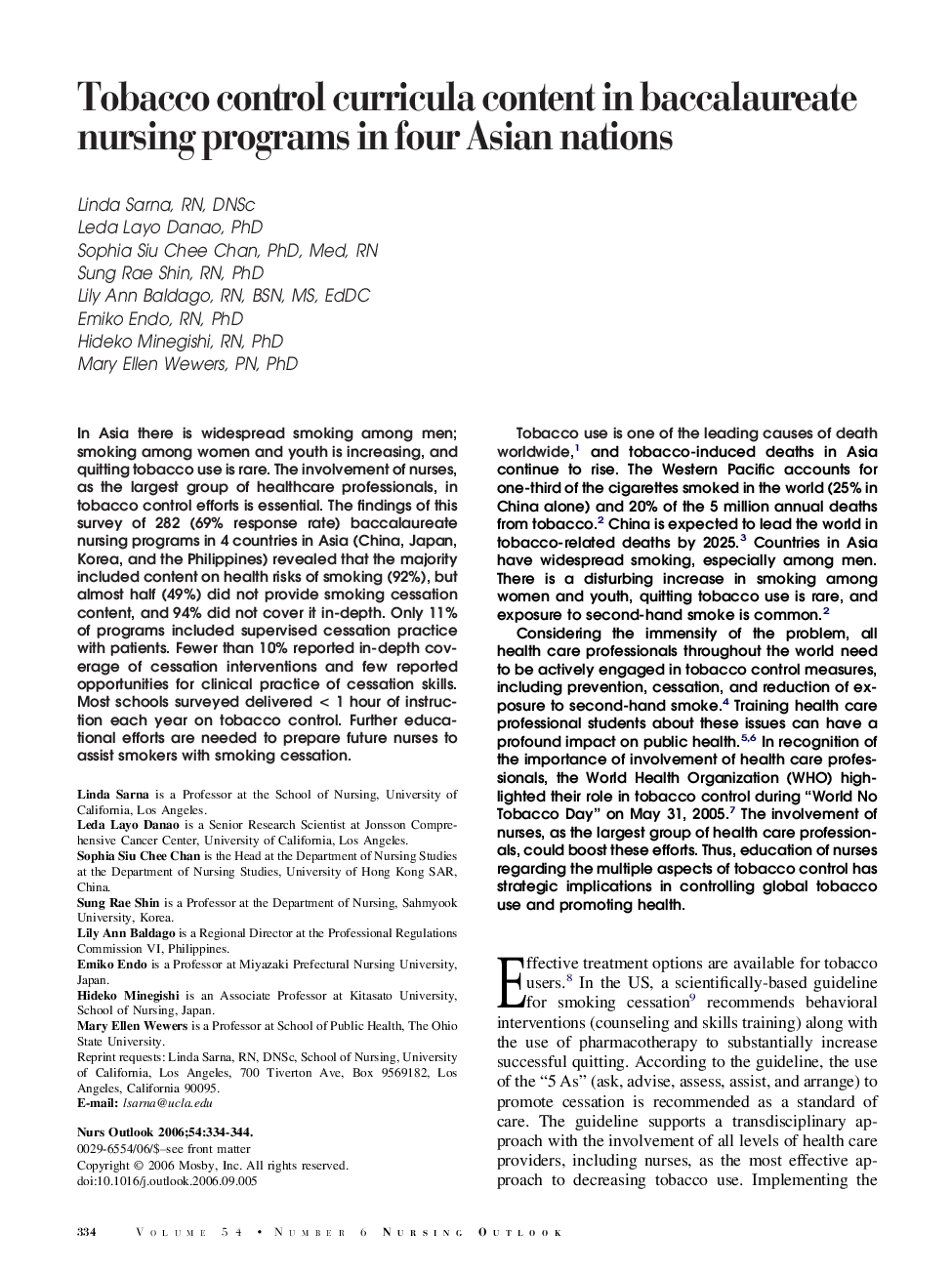| Article ID | Journal | Published Year | Pages | File Type |
|---|---|---|---|---|
| 2676606 | Nursing Outlook | 2006 | 11 Pages |
In Asia there is widespread smoking among men; smoking among women and youth is increasing, and quitting tobacco use is rare. The involvement of nurses, as the largest group of healthcare professionals, in tobacco control efforts is essential. The findings of this survey of 282 (69% response rate) baccalaureate nursing programs in 4 countries in Asia (China, Japan, Korea, and the Philippines) revealed that the majority included content on health risks of smoking (92%), but almost half (49%) did not provide smoking cessation content, and 94% did not cover it in-depth. Only 11% of programs included supervised cessation practice with patients. Fewer than 10% reported in-depth coverage of cessation interventions and few reported opportunities for clinical practice of cessation skills. Most schools surveyed delivered < 1 hour of instruction each year on tobacco control. Further educational efforts are needed to prepare future nurses to assist smokers with smoking cessation.Tobacco use is one of the leading causes of death worldwide,1 and tobacco-induced deaths in Asia continue to rise. The Western Pacific accounts for one-third of the cigarettes smoked in the world (25% in China alone) and 20% of the 5 million annual deaths from tobacco.2 China is expected to lead the world in tobacco-related deaths by 2025.3 Countries in Asia have widespread smoking, especially among men. There is a disturbing increase in smoking among women and youth, quitting tobacco use is rare, and exposure to second-hand smoke is common.2Considering the immensity of the problem, all health care professionals throughout the world need to be actively engaged in tobacco control measures, including prevention, cessation, and reduction of exposure to second-hand smoke.4 Training health care professional students about these issues can have a profound impact on public health.5 and 6 In recognition of the importance of involvement of health care professionals, the World Health Organization (WHO) highlighted their role in tobacco control during “World No Tobacco Day” on May 31, 2005.7 The involvement of nurses, as the largest group of health care professionals, could boost these efforts. Thus, education of nurses regarding the multiple aspects of tobacco control has strategic implications in controlling global tobacco use and promoting health.
